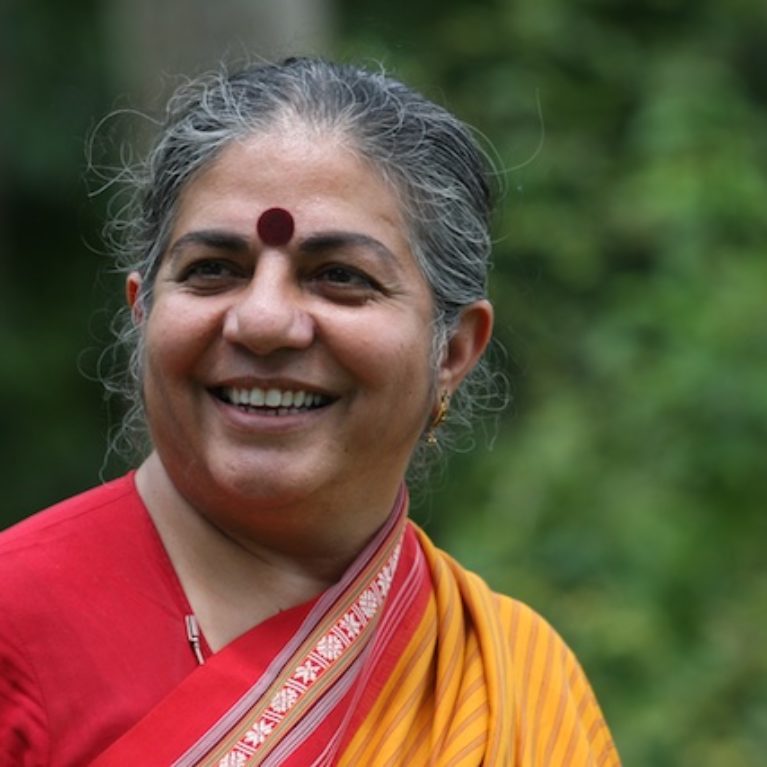Speaker
Vandana Shiva

Dr. Vandana Shiva is trained as a Physicist and did her Ph.D. on the subject “Hidden Variables and Non-locality in Quantum Theory” at the University of Western Ontario in Canada. She later shifted to inter-disciplinary research in science, technology and environmental policy, which she carried out at the Indian Institute of Science and the Indian Institute of Management in Bangalore, India.
In 1982, she left to set up her Research Foundation for Science, Technology and Natural Resource Policy in her home town of Dehra Dun in the foothills of the Himalaya. The Foundation is dedicated to high quality and independent research to address the most significant ecological and social issues of our times, working in close partnership with local communities and social movements. In 1991 she founded Navdanya, a national movement to protect the diversity and integrity of living resources – especially native seed – and to promote organic farming and fair trade. Navdanya has worked with local communities and organisations, serving more than 500,000 men and women farmers. Navdanya’s efforts have resulted in the conservation of more than 3000 rice varieties from across India, and the organisation has established 60 seed banks in 16 states across the country. In 2004, Dr. Shiva started Bija Vidyapeeth, an international college for sustainable living in Doon Valley in collaboration with Schumacher College, U.K.
Dr. Shiva founded the gender unit at the International Centre for Mountain Development (ICIMOD) in Kathmandu, and was a founding Board Member of the Women Environment and Development Organization (WEDO). She has also initiated Diverse Women for Diversity, an international movement of women working for food and agriculture.
Her books have had immense impact. The Violence of the Green Revolution and Monocultures of the Mind pose essential challenges to the dominant paradigm of non-sustainable, industrial agriculture. Biopiracy, Stolen Harvest and Water Wars made visible the social, economic and ecological costs of corporate-led globalisation. Staying Alive dramatically shifts popular perceptions of Third World women.
Time Magazine identified Dr. Shiva as an environmental ‘hero’ in 2003, and Asia Week has called her one of the five most powerful communicators in Asia. In November 2010, Forbes Magazine identified Dr. Shiva as one of the Seven Most Powerful Women on the Globe. She has won many international awards for her work, including the Sydney Peace Prize in 2010.

